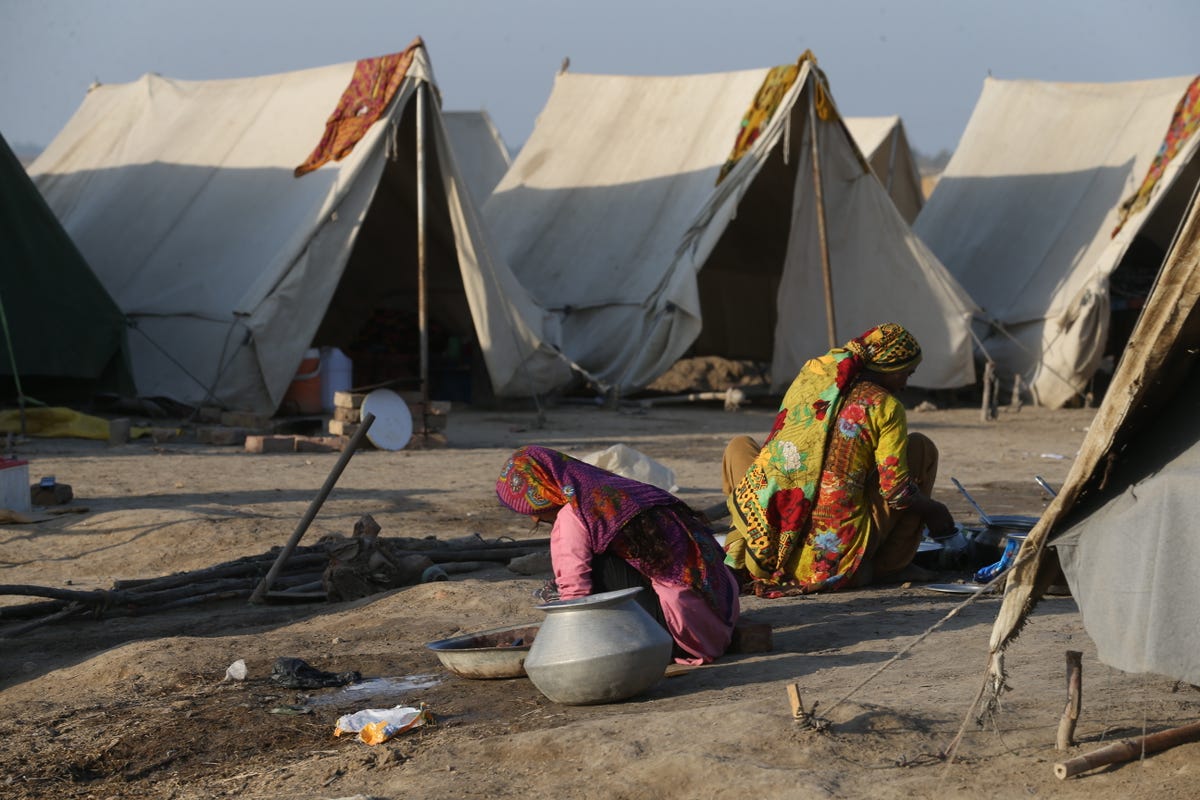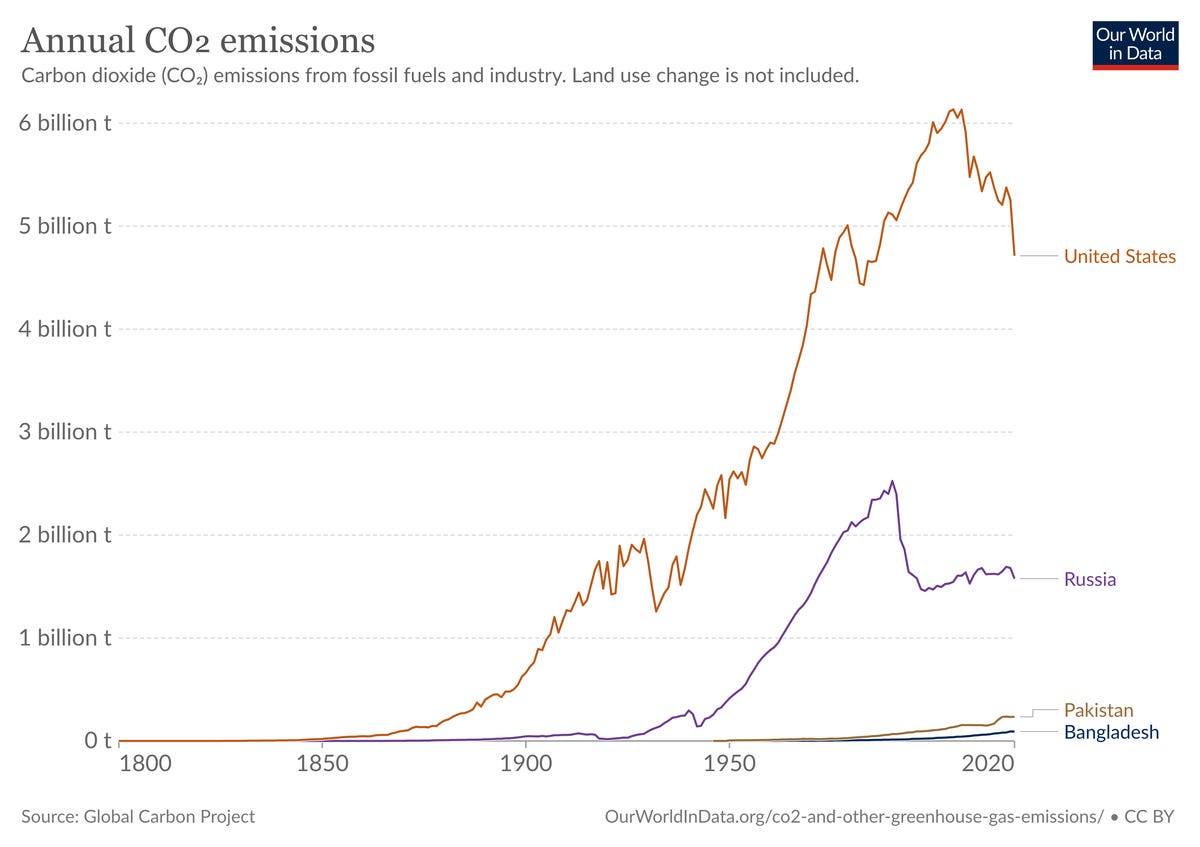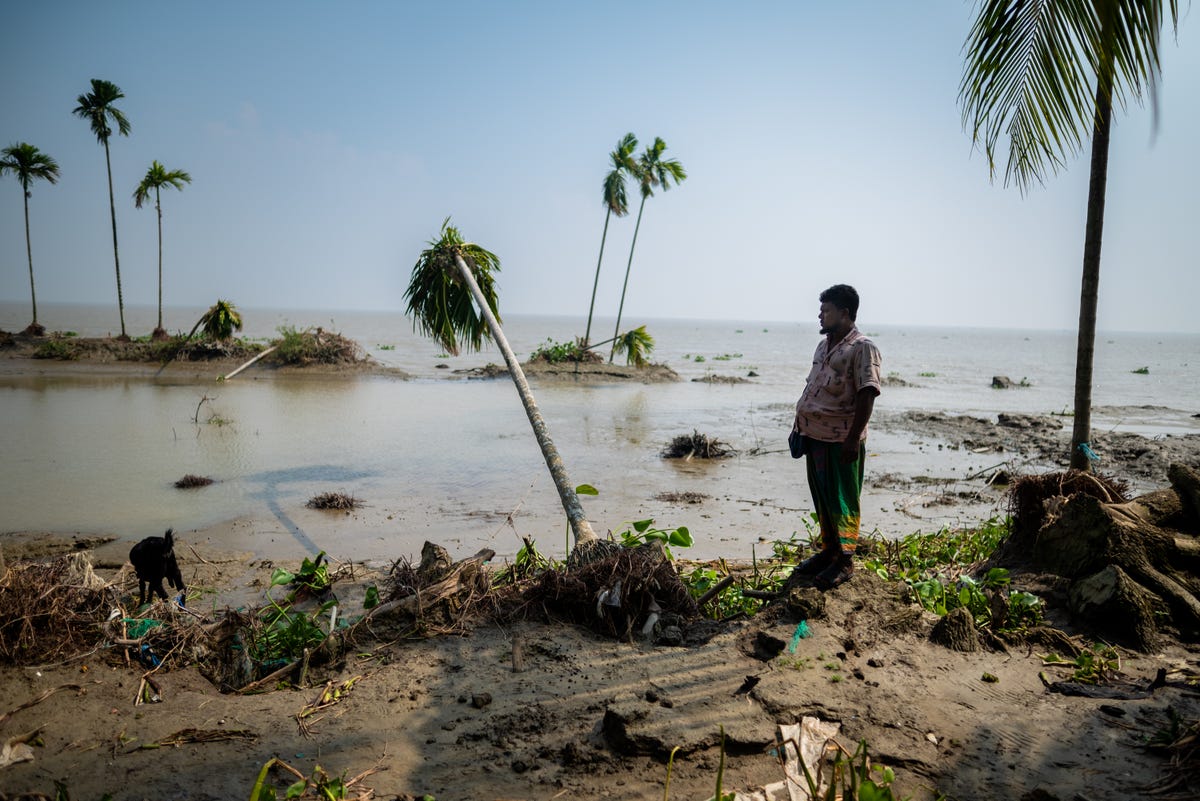Ahead of the COP27 climate change summit, the United Nations issued a report calling on developed countries to significantly raise their funding commitments to developing nations in order to combat the effects of global warming, including more frequent and severe natural disasters like hurricanes, floods, heat waves, and droughts. Such climate aid is vital, as the current situation sees the less privileged suffer the consequences of a crisis brought about and perpetuated by the wealthy.
At COP27, which commenced officially on Sunday, numerous representatives from across the globe are convening to explore effective measures for managing and alleviating the catastrophic impact of climate change from every possible perspective. This particular aspect falls within the broader purview of climate justice.
Although wealthier countries such as the US and Russia have traditionally ranked among the biggest culprits of global warming, it is the poorer nations like Pakistan and Bangladesh that are impacted the most despite not even featuring in the top 20 contributors. In 2020, for instance, the US was responsible for a whopping 4.7 billion tons of carbon emissions from fossil fuels, while Pakistan’s emissions were just one twentieth of that figure.
However, this year witnessed the occurrence of deadly floods in Pakistan that resulted in the death of almost 1,500 individuals and displacement of over 30 million people – a catastrophe that researchers have affirmed was instigated by climate change. Additionally, in Bangladesh, coastal villages are uprooted twice each year by cyclones, prompting the finance minister to allocate $100 million of the nation’s funds toward a specialized climate budget.
According to a report released on Thursday, adaptation requirements in developing countries are projected to increase significantly, potentially reaching $340 billion annually by 2030. However, the current level of support for adaptation is less than one-tenth of that amount, resulting in the most vulnerable populations and communities bearing the consequences. UN Secretary-General António Guterres denounced this situation as unacceptable.
The latest report from the UN suggests that the amount will increase to

On October 22, 2022, families affected by the floods in Dadu District of Mehar, Pakistan were living in tents, as shown in the Getty Images. Despite efforts from wealthier nations to assist those who are vulnerable in dealing with the issue, the significant pledge of climate relief has been repeatedly unfulfilled.
An unfair crisis and a promise unfulfilled
During the COP15, a significant climate conference held in Copenhagen in 2009, developed nations put forward an emotionally moving resolution. They promised to offer a combined amount of $100 billion annually to assist developing nations. This pledge was set to begin in 2020 and conclude in 2025, summing up to $500 billion altogether.
The commitment was officially recorded through a report that outlined instructions such as “the financing will be derived from diverse origins, including public and private, bilateral and multilateral sources, along with alternative financing sources.”
Later, in 2020, it was determined that the $100 billion goal was unattainable, 11 years after its establishment. By the end of it all, only about $83 billion had been collected. To put this in perspective, it represents less than half of Elon Musk’s net worth and approximately one-ninth of the US defense budget for that year.
As per the commitment, an additional $100 billion was requested in 2021, bringing the total owed by wealthy nations to poor nations to $117 billion. However, 2021 came and went without the payment of the aforementioned $117 billion.
Once again, climate change has worsened mainly due to industrial activities carried out in affluent, developed countries.

Emissions of CO? from fossil fuels and industry are the subject at hand. According to a recent report, if the annual growth rate observed in 2019 continues, the target of US$100 billion would not be attained until 2025. To meet the Glasgow Climate Pact’s call for doubling financial flows in support of adaptation by 2025, a considerable increase in adaptation finance is required.
On Friday, India reiterated the failed commitment of $100 billion, drawing attention to it ahead of COP27, which is scheduled to begin the following week in Egypt. Indian government officials urged affluent nations to fulfill the promise made over a decade ago.
As per a source within the Indian government who spoke to Reuters, developed nations must acknowledge that the overall expenses have increased, which indicates that the commitment to provide $100 billion yearly cannot remain fixed. It must be increased.

A field in the village of Ramdaspur in Bangladesh, which was hit by Cyclone Sitrang this year, is being inspected by a man in the image captured by Getty Images.
According to Our World In Data, India is the third largest emitter of greenhouse gases in the world and heavily relies on coal as its main energy source. However, this ranking can be seen in a different light when we consider emissions per capita since the power generated is distributed among a population of 1.4 billion people. Additionally, India is still a developing country and transitioning to renewable energy, although becoming more affordable, remains financially challenging.
With adequate climate assistance, this transition could become more feasible, enabling the nation to pursue its development goals without jeopardizing the health and welfare of its citizens, as well as without exacerbating the broader problem of climate change.
Nonetheless, as wealthier nations attempt to calculate the fiscal distribution of the $100 billion – or merely determine individual contributions – and contemplate the duration of repayment, it’s essential to acknowledge that less affluent countries cannot simply halt their progress.
They are struggling with a crisis that they are not prepared to handle.
“Adaptation needs to be approached with grave importance that acknowledges the equal value of all individuals in the human family,” stated Guterres. “It is high time for a worldwide climate adaptation overhaul that discards excuses and utilizes the tools to rectify the issues.”